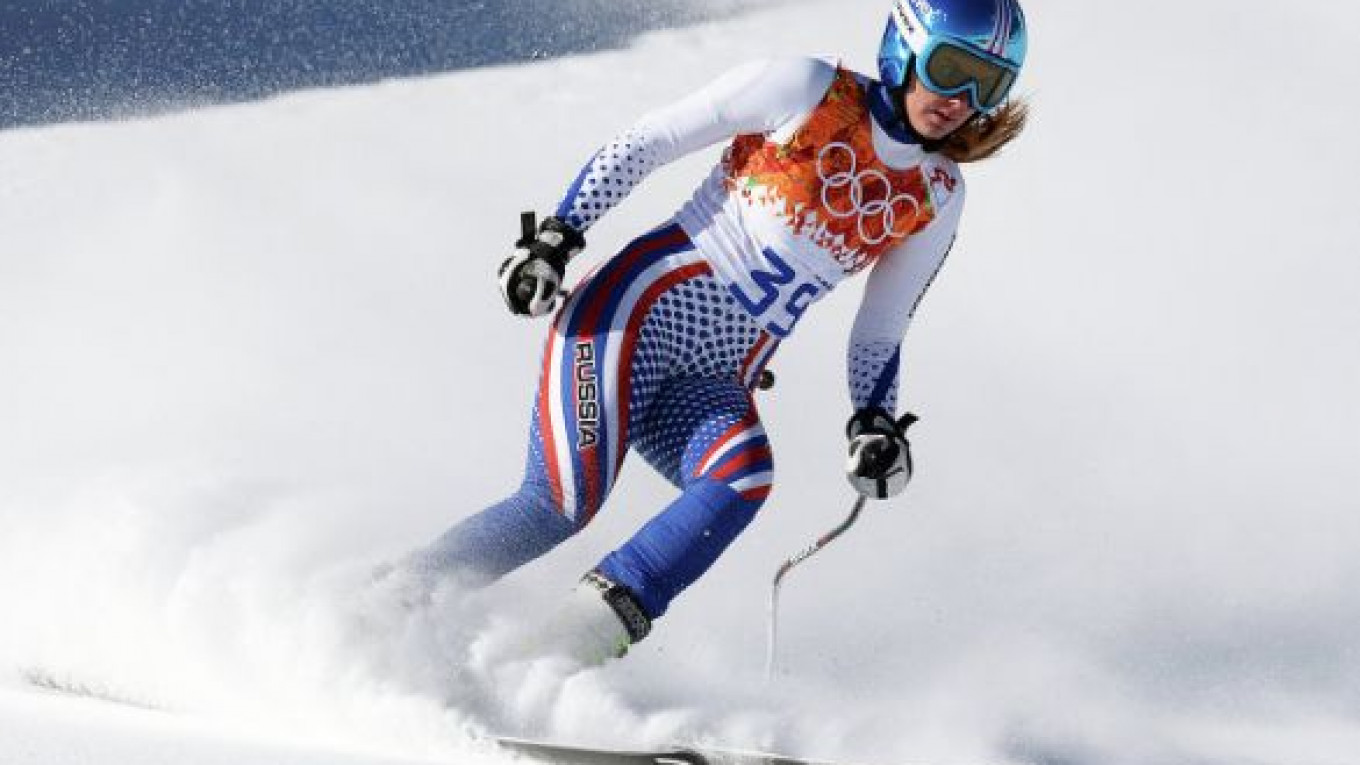In the pick of the action on Wednesday morning, some of the world's finest alpine skiers will compete for medals in the women's downhill finals, though the field has been shorn of reigning Olympic champion Lindsey Vonn.
Vonn will not be in Sochi to defend her title after failing to overcome a knee injury. The 29-year-old partially tore an anterior cruciate ligament in November, only months after returning to action following another serious knee injury.
In Vonn's absence, Germany's Maria Hoefl-Riesch has to be considered a genuine gold-medal contender after securing victory in the Olympic super-combined slalom on Monday.
Hoefl-Riesch now has three Olympic golds to her name and will join the all-time alpine-skiing greats if she wins the downhill event Wednesday. Only Norway's Kjetil Andre Aamodt and Croatia's Janica Kostelic have won four Olympic titles for alpine racing.
Liechtenstein's much-fancied Tina Weirather sustained a leg injury on Sunday and may miss out on the downhill. The training accident has already forced the 24-year-old skier — who is second only to Hoefl-Riesch in this year's World Cup downhill standings — to withdraw from Monday's super-combined event.
The downhill event is one of the most dramatic events of the alpine-skiing program and sees athletes competing against the clock, hurtling down the mountain at speeds of up to 120 kilometers per hour.
At 3.5 kilometers long, the Sochi piste is one of the longest in Olympic history. "It's a great modern downhill," Sasha Rearick, the U.S. men's alpine head coach, told Powder magazine. "It challenges athletes with all the key components: speed, high-speed turns, big jumps, and both technical and gliding sections. Physically, it's very demanding: more turns means more force the athletes are exposed to."
However, the slope has drawn less favorable reviews from competitors.
On Monday, U.S. skier Bode Miller — who won two of the three training practice runs at Rosa Khutor — was left distraught after failing to finish in the medal places in the men's downhill event. Miller earlier said that "If you are not totally focused and paying attention, this course can kill you."
Yet the women seemed to have adopted a hardier attitude to the slope, with Hoefl-Riesch saying the course is actually too slow.
"I think it's a bit over the top to … add even more curves to the track, because it wasn't fast anyway," the German skier said after practicing on the slope last Friday, Reuters reported.
However, there is a real chance that course conditions could blow the contest wide open heading into Wednesday's final. On Tuesday, organizers canceled the last training session ahead of the downhill final due to mild temperatures and soft snow conditions.
The women's downhill finals kick off at 11 a.m. with 42 skiers looking to make their mark. Russian hopes are pinned on Yelena Yakovishina and Maria Bedareva.
A Message from The Moscow Times:
Dear readers,
We are facing unprecedented challenges. Russia's Prosecutor General's Office has designated The Moscow Times as an "undesirable" organization, criminalizing our work and putting our staff at risk of prosecution. This follows our earlier unjust labeling as a "foreign agent."
These actions are direct attempts to silence independent journalism in Russia. The authorities claim our work "discredits the decisions of the Russian leadership." We see things differently: we strive to provide accurate, unbiased reporting on Russia.
We, the journalists of The Moscow Times, refuse to be silenced. But to continue our work, we need your help.
Your support, no matter how small, makes a world of difference. If you can, please support us monthly starting from just $2. It's quick to set up, and every contribution makes a significant impact.
By supporting The Moscow Times, you're defending open, independent journalism in the face of repression. Thank you for standing with us.
Remind me later.






